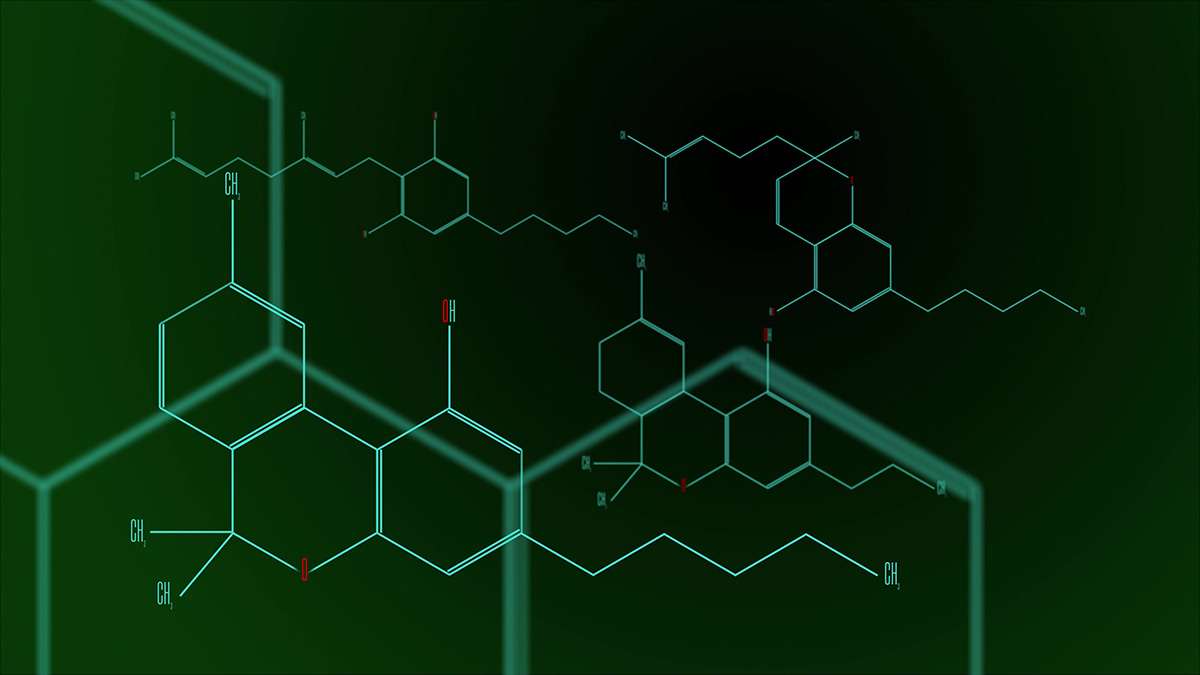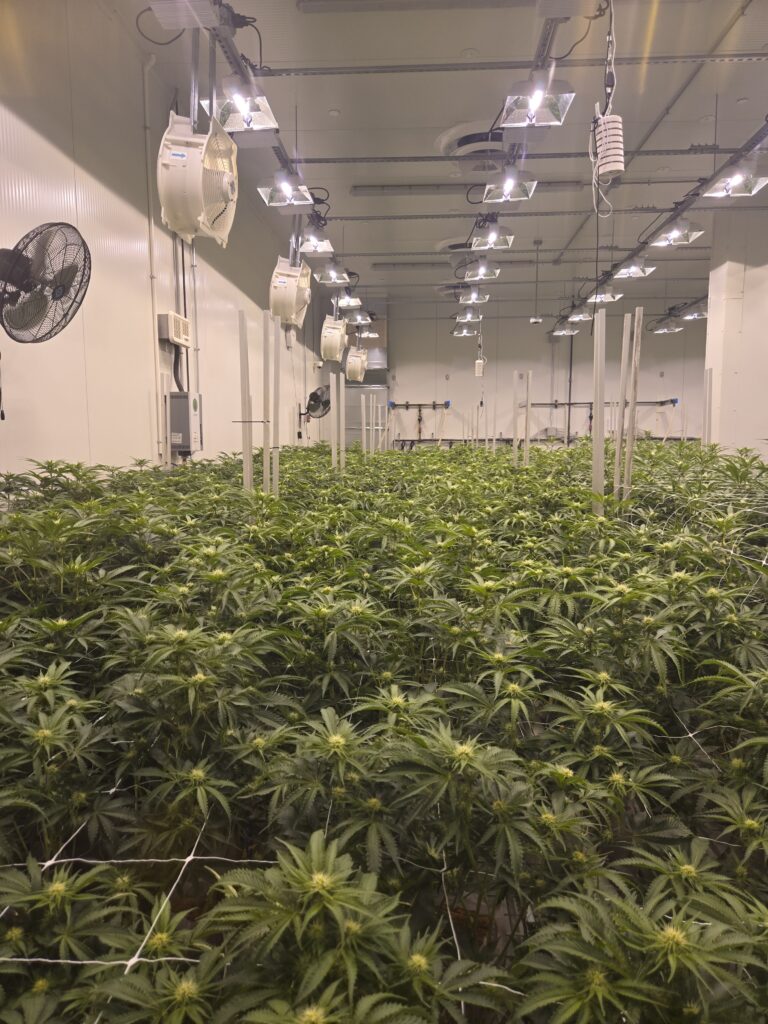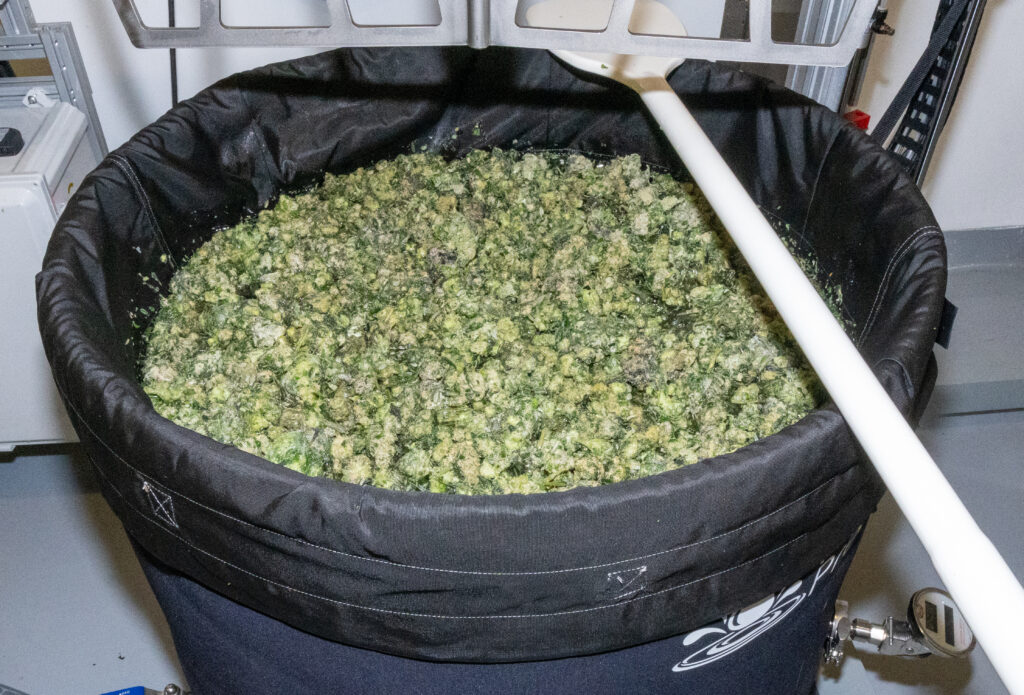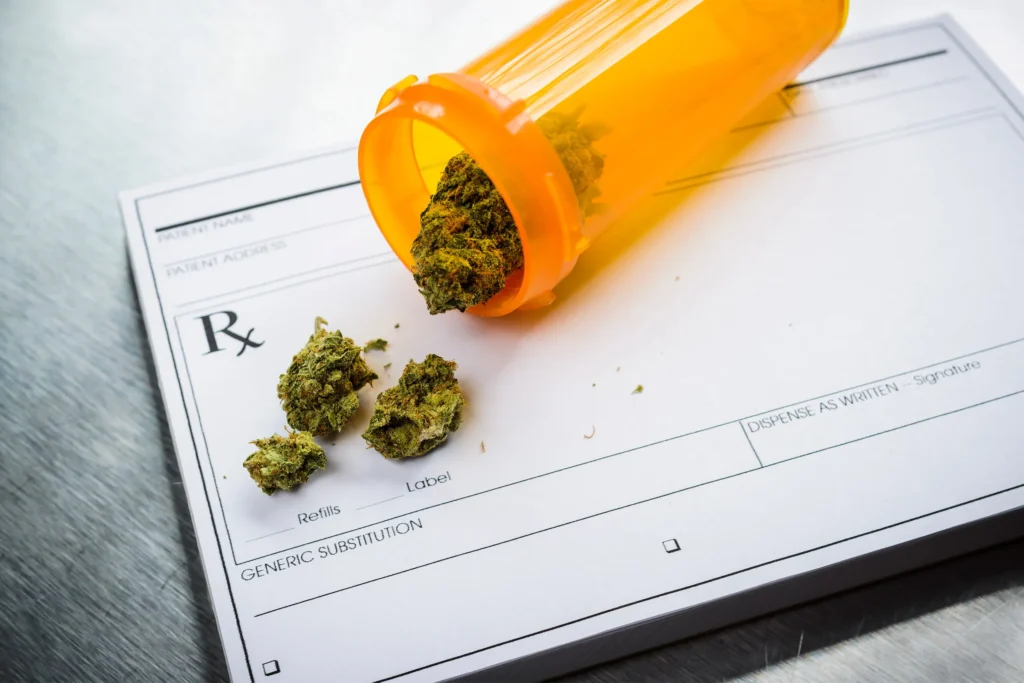Cannabinoids are one of the most important building blocks of cannabis. “What are cannabinoids?” is a common question that our dispensary agents answer. While you’ve probably heard of THC and CBD, there are other cannabinoids that you should know about.
Here’s a rundown so you’ll have the answer to what are cannabinoids and how they affect your cannabis products.
What Are Cannabinoids?
Cannabinoids are natural chemicals found in the cannabis plant, including THC, CBD, and over 120 minor cannabinoids. They play a huge part in how your body processes cannabis, and can work together with terpenes to create a full and rich cannabis experience.
Cannabinoids are processed by your body’s endocannabinoid system. Your endocannabinoid system is responsible for functions like mood, memory, pain perception, inflammation, and more.
Many other plants and animals contain cannabinoids, and your body creates its own, too. The endocannabinoid signaling network in your body is made up of receptors that helps process and break down these important chemicals.
Endocannabinoids are neurotransmitters, so they send nerve impulses to your brain. They’re used to processing these organic endocannabinoids, and since cannabinoids from the cannabis plant work in a very similar way, your brain recognizes them and lets them through, allowing them to affect your behavior and mood.
When you consume a cannabinoid like THC, it affects your body’s endocannabinoid receptors in a way that produces psychoactive effects. CBD and minor cannabinoids can have a profound impact on your perception, physical sensations, and hunger as well.
Major Cannabinoids
THC
THC is the cannabinoid in marijuana that gets you high. That means, for many consumers, it’s by far the most important one.
Your body has two types of endocannabinoid receptors: CB1 and CB2. THC binds to your body’s CB1 receptors, which handle the cannabinoids your body naturally creates. The CB1 receptors generally regulate your body’s stress levels, metabolism, and pain sensations.
When you smoke cannabis, your body’s endocannabinoid system halts your body’s production of neurotransmitters. This allows the THC to enter your brain instead, producing psychoactive effects.
When you consume THC, you may feel relaxed, euphoric, sleepy, active, or creative. The specific sensations will vary based on the cannabis strain, consumption method, terpenes, and other cannabinoids.
THC can be extremely helpful for medical marijuana patients. There’s evidence it may improve the symptoms of the following conditions:
- Chronic pain
- Sleep issues
- Depression and anxiety
- Irritable Bowel Syndrome (IBS)
- Nausea (specifically for cancer patients)
- Epilepsy
- HIV/AIDS
- Multiple sclerosis
- Glaucoma
- Opioid dependence
- Fibromyalgia
- Arthritis
- Anorexia
- Tremors
Please note that the information we provide is for educational purposes only and is in no way a substitution for medical advice. Always consult your doctor prior to using cannabis products for medicinal purposes.
CBD
Consuming cannabis should be a holistic experience, and THC is only one part of the equation. CBD is the second most abundant cannabinoid in marijuana, and it’s been gaining popularity with people who use it on its own without getting high.
Scientists still aren’t totally sure how CBD interacts with the endocannabinoid system. However, it doesn’t bind to the CB1 or CB2 receptors. It may work by preventing endocannabinoids from being broken down, which causes them to affect your body in a stronger way. It may also bind to a receptor that we haven’t discovered yet.
By itself, CBD may help patients with:
- Depression
- Cancer
- Chronic pain
- Epilepsy
- Parkinson’s disease
- Alzheimer’s disease
- Crohn’s disease
- Inflammation
- Migraines
- Post-traumatic stress disorder (PTSD)
- Psychosis
- Stress
- Acne
- Anxiety
- Addiction
- Schizophrenia
- Insomnia
When taken alongside THC, CBD can amplify its medicinal effects and work better than any cannabinoid alone.
Minor Cannabinoids
Minor cannabinoids can play a surprisingly large role in your experiences with cannabis. Many dispensaries are offering more products that retain all of these cannabinoids.
The entourage effect is a theory that all of the cannabinoids, terpenes, and other chemicals in the cannabis plant work better together to create a more holistic experience than using just THC or CBD alone. Many believe that they benefit more from cannabis products that contain all of the plant’s original cannabinoids, but the entourage effect still needs to be studied as cannabis becomes legalized in more areas.
Let’s run through a few of the most common minor cannabinoids.
CBN
When cannabis plants get older, they produce CBN, also called cannabinol. As the plants age, the THC components found in them break down, forming CBN.
Like THC and Delta-8, CBN has psychoactive effects. However, by itself, it’s only about 25% as effective as THC, so it’s much better to try CBN alongside other cannabinoids.
CBN is a great sleep aid and sedative. It may also reduce pain and inflammation for patients with arthritis or Crohn’s disease. Industry experts are excited for the possibilities of CBN as we explore it more fully.
CBG
Cannabigerol, also called CBG, is sometimes called “the mother of all cannabis.” This is because it’s the original cannabinoid made during the cannabis plant’s growth cycle, and all other cannabinoids are synthesized from CBG through metabolic processes as the plant grows.
CBG binds to both your CB1 and CB2 endocannabinoid receptors. Scientists think that it strengthens the function of anandamide, an important neurotransmitter that enhances pleasure, makes you motivated, and regulates your appetite and sleep.
CBG is not psychoactive and won’t get you high. Most cannabis strains contain only 1% CBG, compared to 25% CBD or THC. It’s rarely sold by itself because it works better in conjunction with other cannabinoids.
CBG might be helpful for patients with the following conditions:
Other Cannabinoids
There are over 120 other minor cannabinoids in the marijuana plant, and we’re still learning about their effects.
Some of the most promising minor cannabinoids are:
If you’re interested in any specific minor cannabinoids, our dispensary agents can help you find a cannabis strain that contains it in high concentrations.
Cannabis Products with High Cannabinoid Content
So now you know the answer to the question, “What are cannabinoids?” But how do you make sure that you’re buying cannabis products that take full advantage of them?
Whole cannabis flower is the classic product that preserves the THC, CBD, minor cannabinoids, and terpenes. Pre-rolls are an easy and convenient way to use cannabis flower. However, some of these chemicals can burn off when you smoke, reducing their effects.
Most cannabis concentrates maintain all of the cannabinoids from the flower that they were extracted from, including wax, rosin, crumble, sugar, and hash. However, most distillates are stripped of their minor cannabinoids during the extraction process, leaving only high concentrations of THC.
Learn More About Cannabinoids in Massachusetts
Have more questions? Our expert dispensary agents can help you pick out a product that has the concentration of cannabinoids you’re looking for. Visit Blackstone Valley Cannabis in Uxbridge, MA to find the right cannabis product for you!





